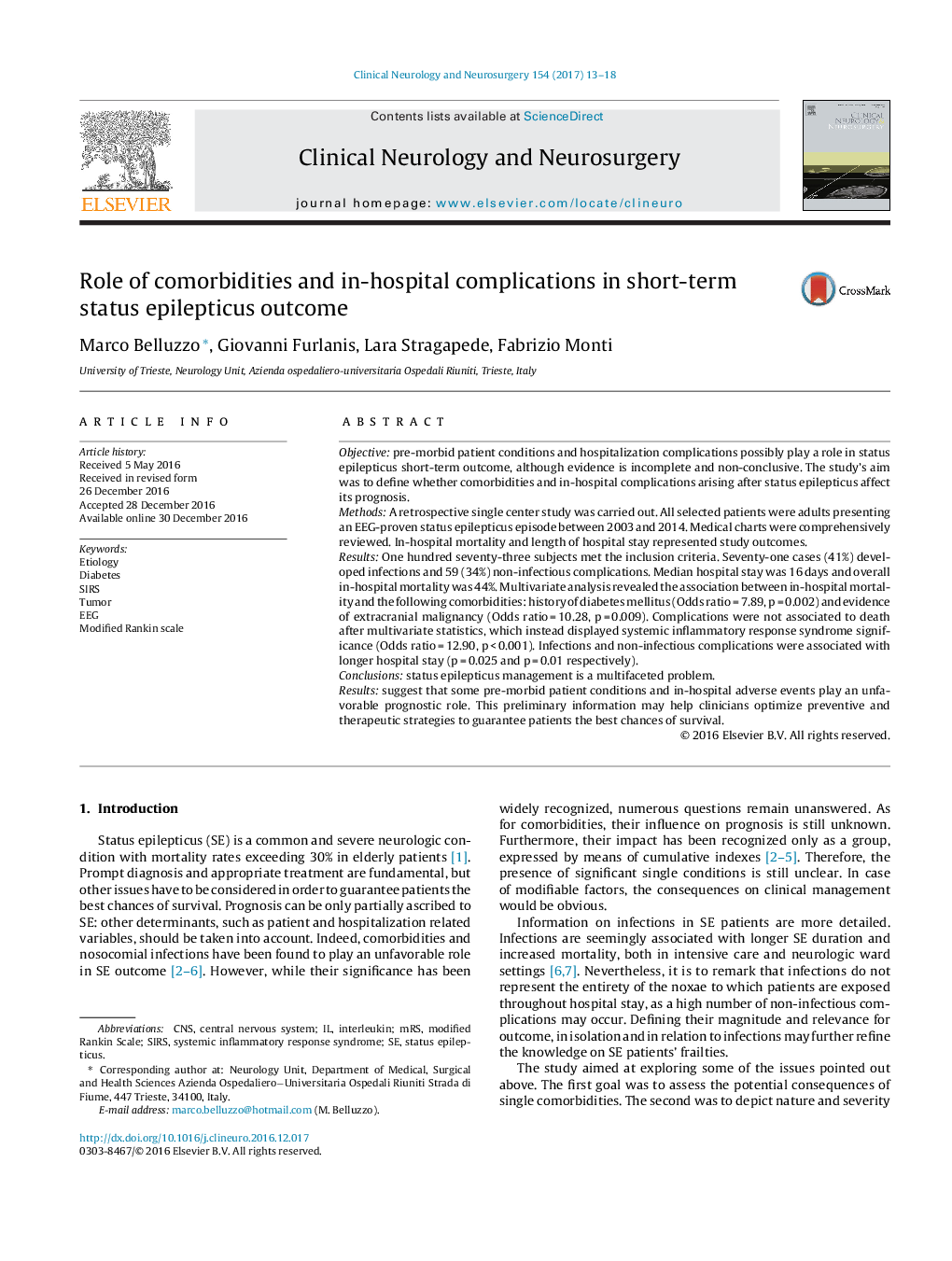| Article ID | Journal | Published Year | Pages | File Type |
|---|---|---|---|---|
| 5627207 | Clinical Neurology and Neurosurgery | 2017 | 6 Pages |
â¢Comorbidities affect status epilepticus short-term mortality.â¢Diabetes and extracranial malignancies play an unfavorable role in this setting.â¢Infectious and non-infectious complications often occur after status epilepticus.â¢SIRS is an important indicator of increased death risk.â¢Complications after status epilepticus are associated with longer hospital stay.
Objectivepre-morbid patient conditions and hospitalization complications possibly play a role in status epilepticus short-term outcome, although evidence is incomplete and non-conclusive. The study's aim was to define whether comorbidities and in-hospital complications arising after status epilepticus affect its prognosis.MethodsA retrospective single center study was carried out. All selected patients were adults presenting an EEG-proven status epilepticus episode between 2003 and 2014. Medical charts were comprehensively reviewed. In-hospital mortality and length of hospital stay represented study outcomes.ResultsOne hundred seventy-three subjects met the inclusion criteria. Seventy-one cases (41%) developed infections and 59 (34%) non-infectious complications. Median hospital stay was 16 days and overall in-hospital mortality was 44%. Multivariate analysis revealed the association between in-hospital mortality and the following comorbidities: history of diabetes mellitus (Odds ratio = 7.89, p = 0.002) and evidence of extracranial malignancy (Odds ratio = 10.28, p = 0.009). Complications were not associated to death after multivariate statistics, which instead displayed systemic inflammatory response syndrome significance (Odds ratio = 12.90, p < 0.001). Infections and non-infectious complications were associated with longer hospital stay (p = 0.025 and p = 0.01 respectively).Conclusionsstatus epilepticus management is a multifaceted problem.Resultssuggest that some pre-morbid patient conditions and in-hospital adverse events play an unfavorable prognostic role. This preliminary information may help clinicians optimize preventive and therapeutic strategies to guarantee patients the best chances of survival.
